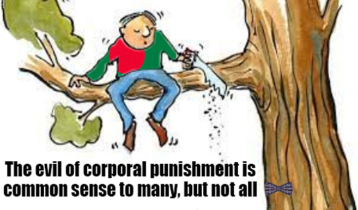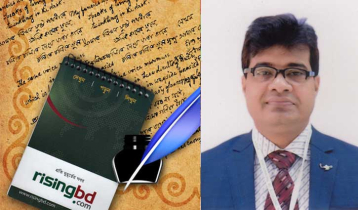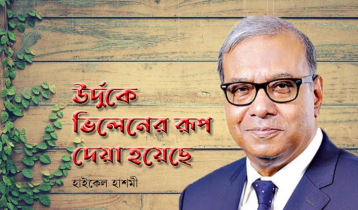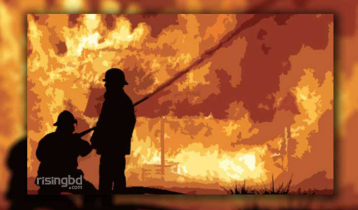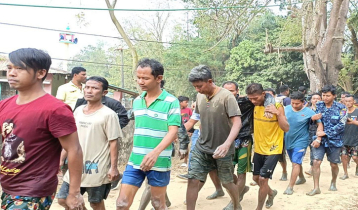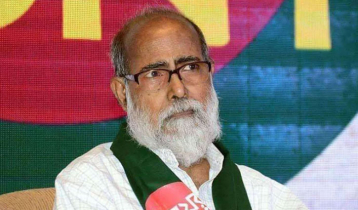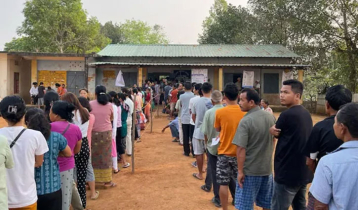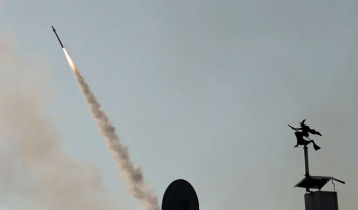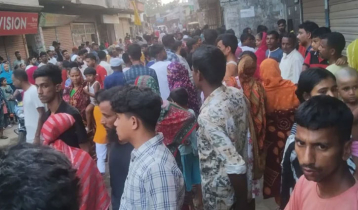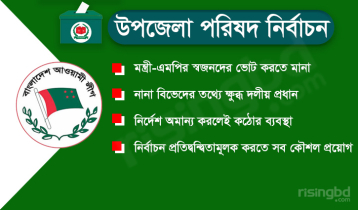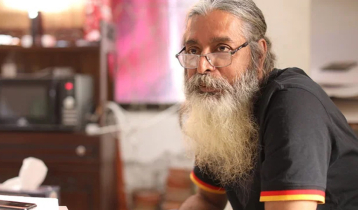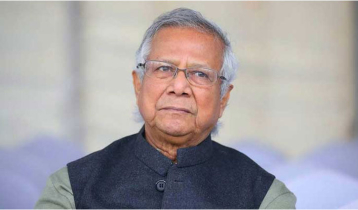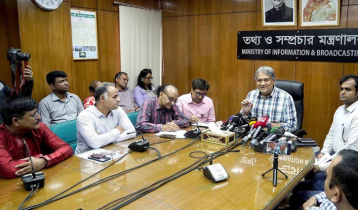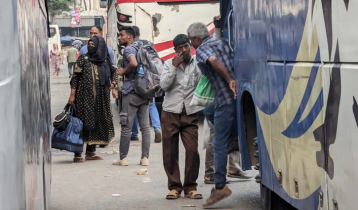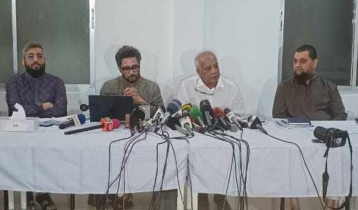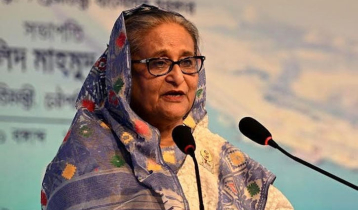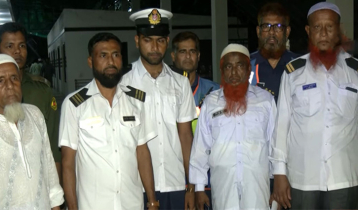Time to end inhuman cruelty to children
Augustin Sujan || risingbd.com
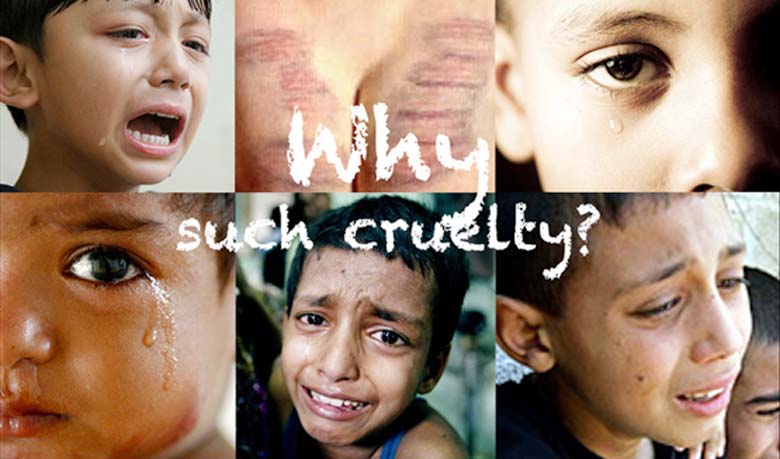
Corporal punishment kills thousands of children each year, and handicaps many more
SIR FRANK PETERS: It’s been almost five years since the good justices Md. Imman Ali and Md. Sheikh Hasan Arif banned corporal punishment from schools and madrasas in Bangladesh. Sufficient time, one would have thought to get the vital message through the thickest of skulls, but apparently not.
There are children in schools and madrasas today who still suffer horrific beatings from ‘teachers’ lacking human qualities of compassion, mercy, and common-sense. They pick-up their monthly salary with indifference to the suffering and long-term damage to the children they’ve caused.
Take for example one deplorable incident that happened last month. Nine-year-old Abu Sayeed, a class two student at Nurani Talimul Quaran Hafizia Madrasa at Kamalpur village, was locked in a room allegedly by ‘teachers’ Riazul Islam, Shariful Islam and Rezaul Islam; mercilessly beaten with a stick and only half-fed during a nightmarish THREE day period. The ‘teachers’ accused the nine-year-old of stealing money, as if that justified their cruel inhuman actions.
How low has humanity sunk that three ‘grown-ups’ saw fit to take turns to visit and inflict pain on a vulnerable defenceless child? Allah help us, please!
Imagine the little boy locked in a room, alone, frightened and nursing pain that no child should suffer. His pitiful cries for help and protection – to both Allah and man – going unheeded and he not knowing what to expect next; perhaps more brutality, perhaps worse… not even his madrasa praying companions and little playmate buddies to visit, comfort, and console him. Put yourself behind his soul-searching tear-filled eyes. How helpless and abandoned is it possible for a child to feel? It wasn’t anything like that in the womb.
No doubt, he has overcome the physical pain by now and the ugly black and blue markings of cruelty to his body will dissipate over time, but one wonders if the same can be said for the pain in his heart knowing society failed him.Was this because he came from a poor family and didn’t attend a private school in Gulshan or Dhanmondi where the law is enforced?
(Due credit must be given to the police officers at Dinajpur Kotwali Police Station who acted swiftly in detaining the culprits when the matter was reported.)
When are ‘teachers’ going to learn that NOTHING good comes from corporal punishment; never has, never will, and there are hundreds of reports worldwide supporting this fact. Does it have to be beaten-in to them, since they believe in the effectiveness of corporal punishment so much?
How could beating a child like Abu Sayeed advance him or society? There are some people whoshield their ignorance behind religious passages like ‘spare the rod and spoil the child’ smugly proclaiming the good book isn’t wrong – and they’re right: the book isn’t wrong, but the translation is!
Bangladeshi Rabindranath Tagore (1861-1941) – Asia’s first Nobel Laureate in literature and a pioneer educationalist of the 19th century ¬– saw education to be a social process concerned with the development of an individual for participation in society both physically and mentally. He believed each child has a unique talent and the role of true education is to explore and promote that innate power within it. He was repulsed by corporal punishment and detested those responsible.
The World Health Organization (WHO) reports corporal punishment “kills thousands of children each year, and handicaps many more.”
Where there’s corporal punishment there’s ALWAYS the possibility the next victim could be your child; a relative, or a child you know. Don’t let it happen. Speak out – prevention is better than cure. Be a voice of prevention, not an echo of regret. No doubt the parents of Abu Sayeed wish they had acted differently.
Preventing lifetime damage to your child – whom you claim to love – could be as easy as telling the Headmaster and teachers that you do not want your child to be given corporal punishment. The parents of one boy told me a ‘teacher’ had beaten their son. The boy’s father and uncle visited the school and spoke to him. There was no physical violence or even loud talk exchanged, but the ‘never do it again’ facial look left a lasting impression. The boy was never beaten again.
Rajowl Karim (one of the two boys who triggered the launch of my anti corporal punishment campaign five years ago) was once told to go to the front of the class to receive corporal punishment, but he planted his size-8 heels on the floor and refused! The spirited little kid told the ‘teacher’ corporal punishment in schools was against the law and no corporal punishment was given to him then or since!
Conversely, if you are happy with the progress your child is making at school, do take the time to write, phone, email or visit the school and thank those responsible. Not all schoolteachers are villains. There are some great schoolteachers in Bangladesh who deserve our highest praise and respect. We just need more of them.
(Sir Frank Peters is a former newspaper and magazine publisher and editor, an award-winning writer, royal goodwill ambassador, humanitarian, human rights activist, and a respected foreign friend of Bangladesh.)
risingbd/DHAKA/May 28, 2015/Augustin Sujan
risingbd.com





